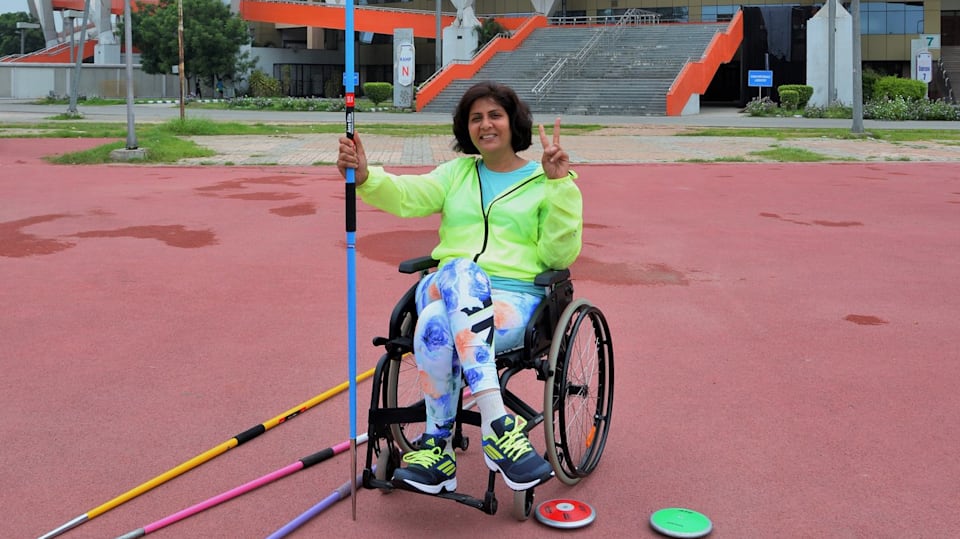
With sporting events resuming across the world, the president of the Paralympic Committee of India (PCI), Deepa Malik, hopes that para-sports too will hit the strides in the coming months.
For the PCI chief, events in the near future matter a lot as it will provide Indian para athletes with an opportunity to win quotas and attain the Minimum Qualification Standard (MQS) for the now-postponed Tokyo Paralympic Games.
“For para-athletes, it’s (competing at the Tokyo Paralympics) still a long way to go,” she told the Olympic Channel.
“What we get is a quota and not a direct berth at the Games. And the number of quotas allocated to a particular country is in proportion to the number of athletes who have achieved the ‘A’ level qualification or the MQS across all disciplines.”
“So, it’s not the case where anyone who’s attained the qualification mark will go for the Games. The mystery remains until we get the quota allocation.”
With the COVID-19 pandemic disturbing the sporting calendar, PCI has resorted to working with the second wave of talent in the country. They hope to bank on them to increase the number of quota places for Tokyo 2020 that India will be awarded.
“Apart from our pool of talent, we have made a lot of talent discoveries. We have been working on them,” said Deepa Malik, a silver medallist from the Rio 2016 Paralympics.
“We are waiting for the international competitions to resume where more athletes can qualify. And once that happens, we hope for a larger share in the quotas allocated.”
Just like the para-athletes, the federation has ensured that they have made the most of the unexpected break due to the pandemic.
Competing at the Paralympics is the best feeling
Calling the delay a ‘blessing in disguise’, Deepa Malik said that the governing body used the break to invest in educating the athletes on various aspects of management - from nutrition to sports science and beyond.
“While the athletes have had time to work on aspects of their game that they otherwise wouldn't have, we as a federation have spent time trying to educate them,” she pointed out.
“Note that most of our athletes come from a poor background. So, it was necessary to educate them about things like athlete classification, sports nutrition and so on.”
The PCI president hoped that the athletes would benefit from the initiatives and stay on track as they continue their preparations for the Paralympics next year.
“It’s (competing at the Paralympics) the best feeling. It’s not only a sense of achievement on a personal level but also the feeling of wearing the contingent’s kit, marching under one flag, representing 1.3 billion Indians, it's a different kind of high,” she said.
“I hope that the athletes continue to work hard, stay dope and injury-free. You have added another year of training to their life. This requires a lot of focus, a lot of self-discipline. I just want them to hang in there and keep this attitude going,” she concluded.
